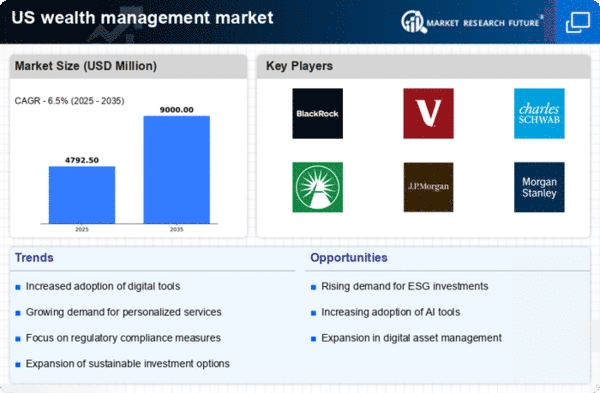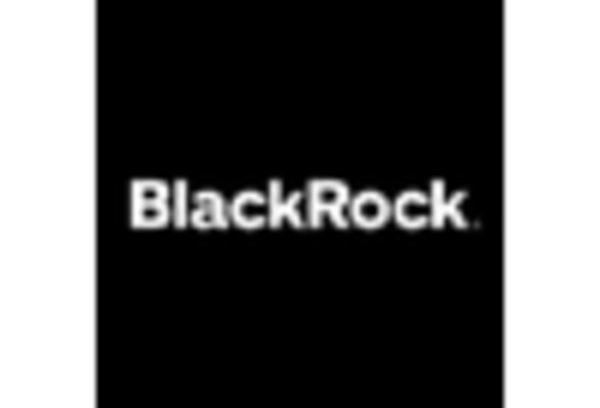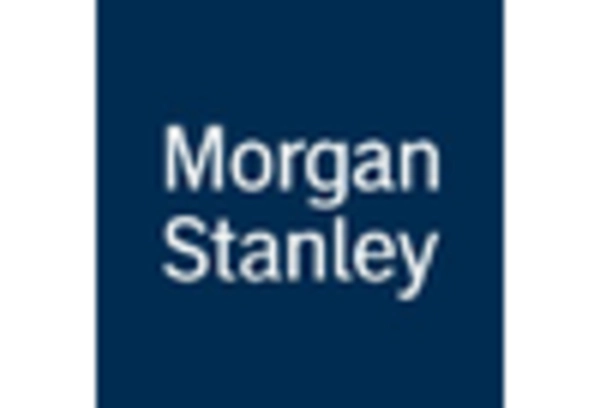Increasing Affluence of Households
The wealth management-platform market is experiencing growth driven by the increasing affluence of households in the US. As disposable incomes rise, more individuals are seeking professional financial advice and investment management services. According to recent data, households with a net worth exceeding $1 million have increased by approximately 10% over the past year. This demographic shift indicates a growing market for wealth management services, as affluent clients are more likely to utilize platforms that offer tailored investment strategies. The wealth management-platform market is thus positioned to benefit from this trend, as financial institutions adapt their offerings to meet the needs of a wealthier clientele.
Growing Demand for Financial Literacy
The growing demand for financial literacy is influencing the wealth management-platform market. As individuals become more aware of the importance of financial planning, there is an increasing need for platforms that offer educational resources alongside investment services. This trend is particularly evident among younger generations, who are actively seeking knowledge to make informed financial decisions. The wealth management-platform market is responding by incorporating educational tools and resources into their offerings. A survey indicates that 70% of millennials prefer platforms that provide financial education, suggesting that this demand could drive the development of more comprehensive wealth management solutions.
Regulatory Changes Favoring Digital Solutions
Regulatory changes in the financial sector are shaping the wealth management-platform market. Recent legislation has encouraged the adoption of digital solutions, making it easier for firms to offer online wealth management services. This shift is particularly relevant as clients increasingly prefer digital interactions over traditional face-to-face meetings. The wealth management-platform market is likely to benefit from these regulatory changes, as they facilitate the entry of new players and enhance competition. As a result, firms are investing in compliance technologies to ensure adherence to regulations while providing innovative services to clients.
Shift Towards Personalized Investment Strategies
The shift towards personalized investment strategies is a key driver in the wealth management-platform market. Clients are increasingly seeking tailored solutions that align with their individual financial goals and risk tolerance. This trend is prompting wealth management firms to leverage advanced analytics and client data to create customized investment portfolios. The wealth management-platform market is likely to see a rise in platforms that emphasize personalization, as clients demand more control over their investment choices. Data suggests that personalized investment strategies can lead to a 20% increase in client satisfaction, indicating that this approach may enhance client loyalty and retention.
Technological Advancements in Financial Services
Technological advancements are significantly impacting the wealth management-platform market. Innovations such as blockchain, big data analytics, and mobile applications are transforming how financial services are delivered. For instance, the integration of big data analytics allows wealth managers to provide personalized investment advice based on real-time market data. The wealth management-platform market is likely to see an increase in user engagement as platforms enhance their technological capabilities. A report indicates that firms investing in technology are experiencing a 15% increase in client retention rates, suggesting that technology is becoming a critical driver of success in this market.
















